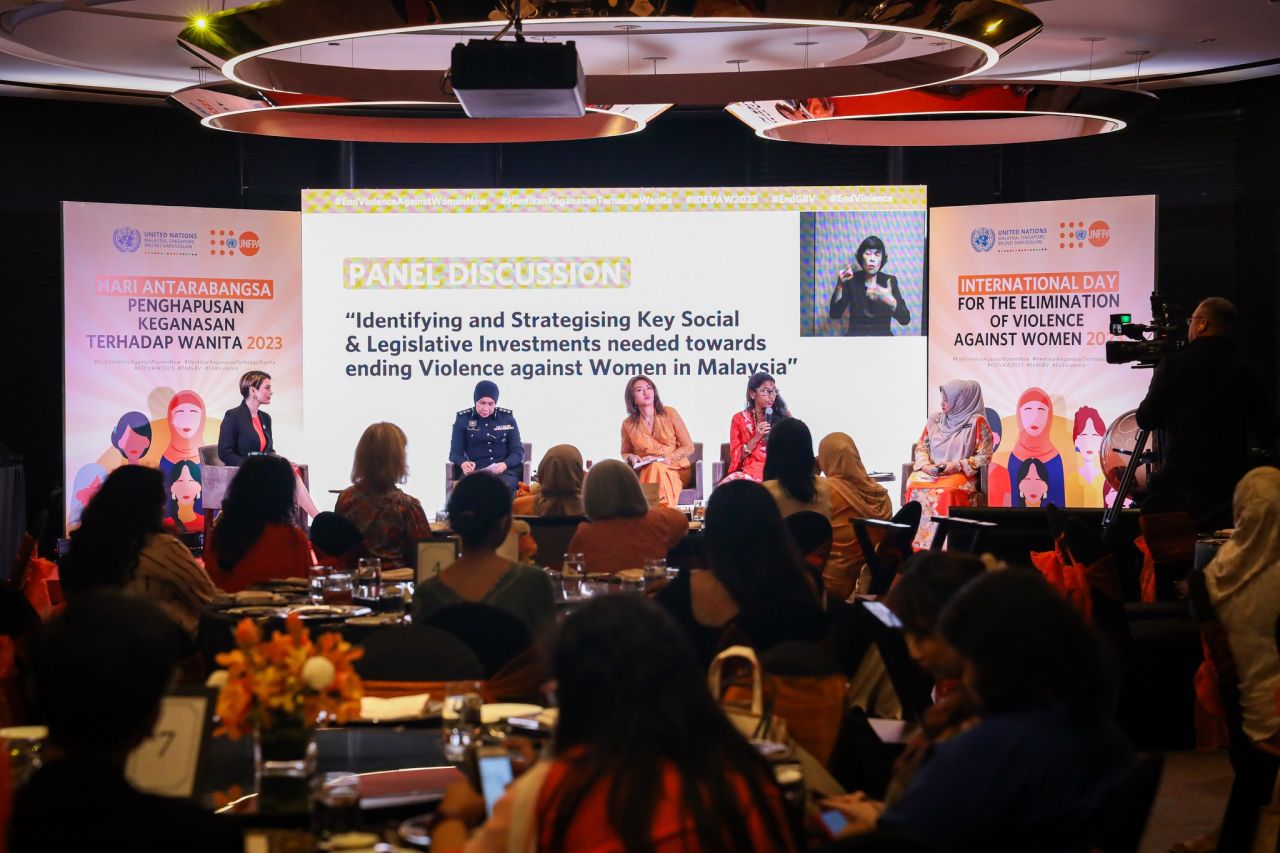KUALA LUMPUR, Dec 29 – Although the number of domestic violence cases has decreased by 10.4 per cent from 7,468 cases in 2021 to 6,695 cases in 2022, it is still the violent crime with the most number of cases, according to statistics provided by the Royal Malaysian Police (PDRM) published in the Department of Statistics Malaysia’s report on Women Empowerment in Selected Domains.
Women comprise the majority of domestic violence victims in both years, constituting 68.7 per cent (5,131) of cases in 2021 and 71.1 per cent (4,762) of cases in 2022.

Dependent On Husbands Or Partners
ACP (assistant commissioner of police) Siti Kamsiah Hassan, who is also the principal assistant director of PDRM’s D11 Unit, said that most cases of domestic violence involve women who do not have the economic means to escape their situation. D11 is the Sexual, Women and Children’s Investigations Division.
Speaking at an event to launch the International Day for the Elimination of Violence Against Women last November 24, Siti Kamsiah said: “Based on our statistics from a few years back until today, we can see that most of the domestic violence cases are women and also that they are not working. Most of them are housewives.
“They are not contributing to the family economy so they are really dependent on their husbands or partners. So, what we can see here is when they rely on the other party or their partner, they tend to be controlled by their partner.”
Siti Kamsiah said although domestic violence poses a huge threat to their lives, many women are not willing to leave their marriages or relationships because they have no education and skills. “So, they are afraid to become independent.”
She added that based on PDRM’s analysis, most victims of domestic violence fall in this category. As a result, “they have no courage to go outside of their toxic relationship.”
Burdened With Care Work
Tengku Aira Tengku Razif, assistant representative United Nations Population Fund (UNFPA) Malaysia, said the strain of taking on care work at home affects women’s ability to work in formal settings, leaving them compromised in domestic violence situations.
“Economic vulnerability basically exacerbates gender based violence and in a lot of cases when women try to be at work, they are burdened with care work. Statistics have shown that the majority who are burdened are women, so what do they do then?” said Tengku Aira, who spoke at the same event.
“Statistics have also shown that they opt for perhaps informal work, which means you then lack many coverages – social protections, insurance, leave and so forth. And it’s a vicious cycle because then you will have low income, you will become more economically vulnerable and you will not leave a situation at home where there’s violence because you’re economically dependent.”
Economic Empowerment And Emotional Resilience
Sumitra Visvanathan, executive director of the Women’s Aid Organisation (WAO), said there are also situations where despite earning an income, women are still left vulnerable because they do not have control over their own money.
“When it comes to the women that we support, 80 per cent of our clients have faced financial abuse, in addition to all the other abuses that they face. Part of the abuse is preventing them from obtaining their own source of income, but regardless of whether they do earn their own income or not, the control of that money is taken away from them,” she said.
“That is absolutely the case. And the fear of financial hardship is one of the barriers for women to step outside of that abusive relationship and to seek safety.”
Based on WAO’s extensive experience of working with women in such situations, the NGO finds that aside from economic empowerment, women must also have emotional resilience to achieve sustainable freedom from violence, said Sumitra.
For economic empowerment, WAO has a programme called Power Up that provides entrepreneurship training to women in post crisis situations, which also includes an initiative called Stitching Forward.
“Stitching Forward has now also moved towards creating corporate gifts. And the women who are part of the programme are actually earning a great deal of income,” said Sumitra.
However, she adds that women who are post crisis and have survived domestic violence often suffer from a complete loss of self-belief and self-confidence.
“You can throw at her all kinds of opportunities but it’s not fertile ground. It’s like water off a duck’s back. You need to also have that period where you’re there, where you’re journeying with her, holding her hand, and telling her: you can do this.
“And she also has to have access to that professional who will sit there, listen to her, guide her, build her confidence and tell her: you can survive. So, both of those need to go hand-in-hand.”












